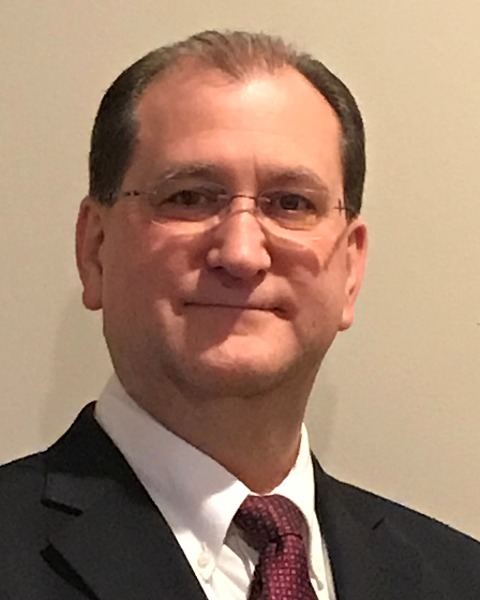Behind the Scenes of the Alternative Microbiological Methods Workshop PDA Expert Interview with Member Chris Murdock, PhD, CQA
 If you were charged with designing a microbiology workshop focused on emerging microbiological technologies
and innovations that will lead the industry forward, you would be well served to enlist the expertise of well-respected professionals. Christopher Murdock, his fellow committee members and the host of talented speakers fit the bill
and have been working hard to make the PDA Alternative Microbiological Methods Workshop relevant and meaningful for their peers.
If you were charged with designing a microbiology workshop focused on emerging microbiological technologies
and innovations that will lead the industry forward, you would be well served to enlist the expertise of well-respected professionals. Christopher Murdock, his fellow committee members and the host of talented speakers fit the bill
and have been working hard to make the PDA Alternative Microbiological Methods Workshop relevant and meaningful for their peers.
Chris is well qualified for this volunteer job as he holds two degrees in microbiology and a PhD in molecular microbiology. He is Head of Sterility Assurance and Microbiology Support for Eli Lilly and Company. He has nearly 35 years of industry experience in microbiology and sterile quality in both laboratory and operational roles and extensive experience in compliance and auditing requirements. Chris has also been involved in identifying alternative microbiology methods since the early 1990s.
The workshop is scheduled for 09-10 October in Washington, DC, to explore new microbiological test methods that meet the turnaround time in novel and compounded therapies as well as provide increased sterility assurance. The EU GMP Annex 1: Manufacture of Sterile Medicinal Products revision and the recently proposed compendial chapters stress the importance of incorporating alternative microbiological methods in process/facility monitoring and release test methods. The hands-on workshop focuses on how to successfully navigate the evaluation and adoption of rapid and alternative microbiological methods.
We caught up with Chris to learn more about plans for the workshop and get a behind the scenes preview of the event.
Teamwork
Chris says his role in the planning committee is to work with his fellow members to look at the current landscape in the industry to understand existing challenges and opportunities. He says the committee consists primarily of microbiologists “who are deeply passionate about their role in the industry. They come from a range of different sectors, ranging in experience from senior to early career practitioners.”
He says that all committee members utilize and exchange their experiences to consistently improve the industry’s science, technology and its application with the intention to guarantee the quality of products. “Their cumulative expertise enables us to stay attuned to what is effective and identify areas for improvement, which we strive to incorporate into the workshop content,” he adds. The overarching goal of the committee is to enable industry peers to look at the range of technologies and improve their skills in how to test and monitor microbial product quality.
He says he helps recommend content for the workshop by being informed by research and talking extensively within his industry networks to identify shared problems and concerns. Developing the workshop program is based on the committee’s aggregated experience in their own organizations, canvassing emerging technologies and identifying the appropriate benchmarks to measure success. He says he is gratified by his work with the committee and the high level of collaboration and openness to sharing mutual challenges.
Interaction and Collaboration
What Chris has found that makes these workshops different from conferences is the high level of interaction with diverse professionals who have a shared purpose: to elevate the quality and impact of their work. In the prior workshops, he found that the interaction drew out the highest level of theory, strategy and operations in a non-competitive environment. Chris explains that he found these to be opportunities to learn from peers and share innovative solutions and applications that are invaluable.
He adds that interactivity is built into these workshop formats and happens naturally. Opening presentations prime case studies that smaller teams among the attendees work on together to identify novel solutions.
About the Expert
 Chris Murdock, PhD, holds a Bachelor of Science and Master of Science in microbiology from the University of Memphis and a PhD from Rutgers University in Molecular Microbiology. Chris has over
35 years of industry experience in microbiology, sterility assurance and sterile quality in both laboratory and operational roles. He has worked in contract manufacturing organizations as well as small, mid-size and large pharmaceutical,
biotech and medical device organizations. Dr. Murdock has extensive experience in sterile quality, aseptic processing and nonsterile manufacturing, as well as both development and commercial production. Dr. Murdock also has extensive experience
in compliance and auditing requirements, has supported and led domestic and international Health Authority inspections, and is an ASQ and ISO Certified Auditor and Specialist Microbiologist (NRCM). Chris is the current chair of the Pharmaceutical
Microbiology Expert Discussion Group and previously served on the USP Microbiology Water Committee. Chris served as the Co-lead author for the PDA Technical Report (TR) No. 13-2: Environmental Monitoring of Facilities Manufacturing Low
Bioburden Products, TR No. 88: Microbial Data Deviation Investigations in the Pharmaceutical Industry and TR No. 90: Contamination Control Strategy Development in Pharmaceutical Manufacturing.
Chris Murdock, PhD, holds a Bachelor of Science and Master of Science in microbiology from the University of Memphis and a PhD from Rutgers University in Molecular Microbiology. Chris has over
35 years of industry experience in microbiology, sterility assurance and sterile quality in both laboratory and operational roles. He has worked in contract manufacturing organizations as well as small, mid-size and large pharmaceutical,
biotech and medical device organizations. Dr. Murdock has extensive experience in sterile quality, aseptic processing and nonsterile manufacturing, as well as both development and commercial production. Dr. Murdock also has extensive experience
in compliance and auditing requirements, has supported and led domestic and international Health Authority inspections, and is an ASQ and ISO Certified Auditor and Specialist Microbiologist (NRCM). Chris is the current chair of the Pharmaceutical
Microbiology Expert Discussion Group and previously served on the USP Microbiology Water Committee. Chris served as the Co-lead author for the PDA Technical Report (TR) No. 13-2: Environmental Monitoring of Facilities Manufacturing Low
Bioburden Products, TR No. 88: Microbial Data Deviation Investigations in the Pharmaceutical Industry and TR No. 90: Contamination Control Strategy Development in Pharmaceutical Manufacturing.
Main Attractions
In the past, Chris noted that the exploration of new and alternative technologies is the most well-received feature of these workshops. Chris adds that these events also focus on the challenges and situations professionals share within the industry, and communicating these issues and collaborating on the solutions is key.
Chris explains, “In these workshops, the strength is the networking opportunity that encourages knowledge sharing among professionals from non-competing industries who may possess a solution or technology that could be beneficial to other attendees’ needs.” He says that “staying informed about current trends allows you to stay up to date with technology and associated processes/regulation, which you can use to improve your processes and systems. Our measurement of microbes is a common area for collaboration; this uniqueness allows pre-competitive collaboration based on our science without disclosing or compromising the operational and trade secrets associated with our individual companies.”
He adds that the opportunity to network and learn from peers in a non-competitive environment helps to build a shared purpose around common causes. This collective goal is driven by the desire to share knowledge and insights. He explains that the creation cycle of developing new technologies can take time, so these types of workshops address existing and alternative technologies that attendees may not have considered as current solutions. Networking among workshop attendees opens the conversation about the efficacy of using existing technologies and perspectives on overcoming regulatory challenges and hurdles based on real-life experiences. Chris adds that the underlying motivation of the workshop is to shed light on industry issues that benefit all, mostly patients.
A Must-Attend Workshop
Chris says that when he attended these types of events, he found them career-enhancing and offered unique insights into innovation and technologies. He adds, "Simultaneously, you have the opportunity to contribute to consolidating the best current practices, thereby improving the delivery and quality of our products for the future. My past experience has allowed for the facilitation of continuous improvement. By identifying specific needs unique to our industry and translating these insights into action, we use a combination of cross-industry collaborations and work groups to improve current practice and guidance to showcase the best of our science."
Chris noted in the numerous workshops he has attended in the past that there are three key drivers. Number one is the reinforcement that “You are not alone,” and there is a community of peers who want to share and learn. He says, “Engage in active listening, and you will quickly discover that you are among individuals who share similar interests and are eager to exchange their experiences.”
Number two is the power of networking. He says, “Take advantage of networking opportunities, and you will soon realize that your own experiences hold as much value as the knowledge you gain from others.” He says attendees go back to their own companies with the energy and insights of a shared experience with newfound knowledge.
The third reason is the high level of collaboration, which provides a fresh set of skills that prove to be an advantage to any team. He adds, “Embrace collaboration that enriches collective knowledge while also providing new insights that can reshape long-established perspectives.” He believes that the teaching process is stronger with collective knowledge than with individual knowledge.
If anyone still needs convincing, Chris says he has benefitted from the professional relationships he has built over the years. He says his involvement in these types of events as a participant or leader has been a tremendous asset. The range of diverse ideas and perspectives provides an unprecedented opportunity to learn and further the shared purpose of the industry.
Register today to be part of this must-attend workshop.


